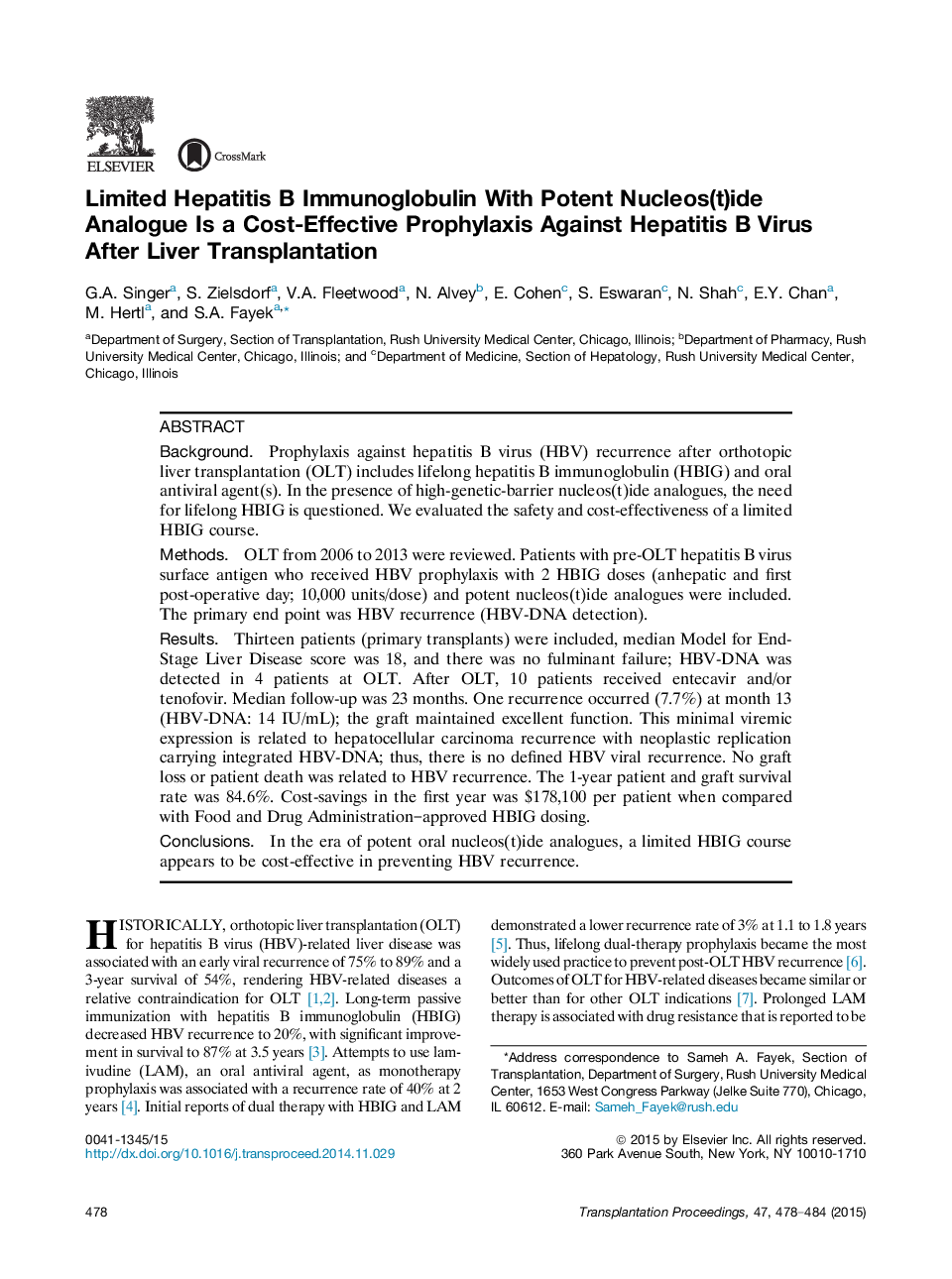| Article ID | Journal | Published Year | Pages | File Type |
|---|---|---|---|---|
| 4257631 | Transplantation Proceedings | 2015 | 7 Pages |
•We examined the effectiveness of a new protocol for post-OLT HBV prophylaxis.•The use of only 2 HBIG doses is safe in the era of potent oral HBV agents.•No patient death or graft loss was related to HBV recurrence.•Significant cost reduction with the suggested protocol of limited HBIG dosing.
BackgroundProphylaxis against hepatitis B virus (HBV) recurrence after orthotopic liver transplantation (OLT) includes lifelong hepatitis B immunoglobulin (HBIG) and oral antiviral agent(s). In the presence of high-genetic-barrier nucleos(t)ide analogues, the need for lifelong HBIG is questioned. We evaluated the safety and cost-effectiveness of a limited HBIG course.MethodsOLT from 2006 to 2013 were reviewed. Patients with pre-OLT hepatitis B virus surface antigen who received HBV prophylaxis with 2 HBIG doses (anhepatic and first post-operative day; 10,000 units/dose) and potent nucleos(t)ide analogues were included. The primary end point was HBV recurrence (HBV-DNA detection).ResultsThirteen patients (primary transplants) were included, median Model for End-Stage Liver Disease score was 18, and there was no fulminant failure; HBV-DNA was detected in 4 patients at OLT. After OLT, 10 patients received entecavir and/or tenofovir. Median follow-up was 23 months. One recurrence occurred (7.7%) at month 13 (HBV-DNA: 14 IU/mL); the graft maintained excellent function. This minimal viremic expression is related to hepatocellular carcinoma recurrence with neoplastic replication carrying integrated HBV-DNA; thus, there is no defined HBV viral recurrence. No graft loss or patient death was related to HBV recurrence. The 1-year patient and graft survival rate was 84.6%. Cost-savings in the first year was $178,100 per patient when compared with Food and Drug Administration–approved HBIG dosing.ConclusionsIn the era of potent oral nucleos(t)ide analogues, a limited HBIG course appears to be cost-effective in preventing HBV recurrence.
